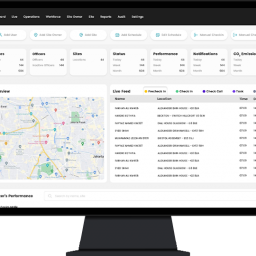How Can Technology Improve Employee Engagement
Whether you’re employing new technology to innovate, generate new efficiencies, grow, or experiment with new ways of working, digital transformation is transforming the way businesses operate. Many firms are just now beginning to evaluate how technology might help with social responsibility, diversity, equity, and inclusion, as well as sustainability.
Corporate social responsibility is increasingly commonly regarded as a moral obligation, one that employees seek and cherish since it allows them to have a good effect in the workplace. With global competition for talent putting pressure on HR departments, firms may boost employee engagement by supporting social causes. Whichever technique you select, measures that foster an inclusive and progressive workplace culture attract the employees you require to run your firm.
With society and investors on their tails, corporate leaders see the significance of participating in more socially conscious activities and are adjusting their strategy to reflect this thinking. People want to see genuine change that leads to actual results, not just abstract terms like corporate social responsibility and governance.
4 Ways Tech Can Contribute to Employee Engagement
Technology may help have a good social effect and boost employee engagement in addition to providing the remote and hybrid work arrangements that many have preferred since the pandemic:
1. Maximize Human Potential
People are no longer anxious about digital technology displacing them. On the contrary, 74% of employees report higher job satisfaction when new technology is used in their procedures. This job satisfaction enables these “digital revolutionaries” to experience increased productivity, improved work/life balance, gain new skills, and take on a more strategic role in their firm. Companies may empower their workers to contribute to their society by providing time off for volunteering (VTO) and tracking employee engagement using a platform.
2. DEI Training and Development
Employee engagement is influenced by a sense of belonging, however there are prevalent conventional behaviors and attitudes that exclude some team members. Providing guidance and training in areas such as sensitivity, diversity, equity, and inclusion helps to shine light on unspoken attitudes that need to change and clarifies workplace behavior requirements. Technology aids in this process by providing training films, webinars, and video conferencing.
Another tool that firms may utilize to promote inclusivity, employee engagement, and growth is employee resource groups. Employees may examine hurdles and frustrations and find solutions in a safe and supportive setting by meeting with other team members experiencing similar issues or ambitions.
3. Big Data and Environmental Sustainability
Because of technology improvements, practically all businesses, regardless of size, now have access to massive volumes of data. This data may be used to track and promote environmental sustainability in their activities. According to research, climate change is a major worry for millennial and Gen Z employees.
Since big data provides a comprehensive picture, it assists employees in understanding the influence their job may have on environmental and sustainability goals, as well as in building engagement via this shared vision.
4. Promote Volunteerism and Remote Work
One of the most significant contributions of technology in the workplace is the ability for people to work remotely. According to one poll, 61% of employees had had extremely favorable experiences with remote work.
Cloud storage, file sharing, and cloud computing enable employees to communicate with their teams at any time and from any location. Project management tools can help them have a better understanding of their activities and projects. These solutions keep projects and personnel on schedule, regardless of the type of endeavor.

















